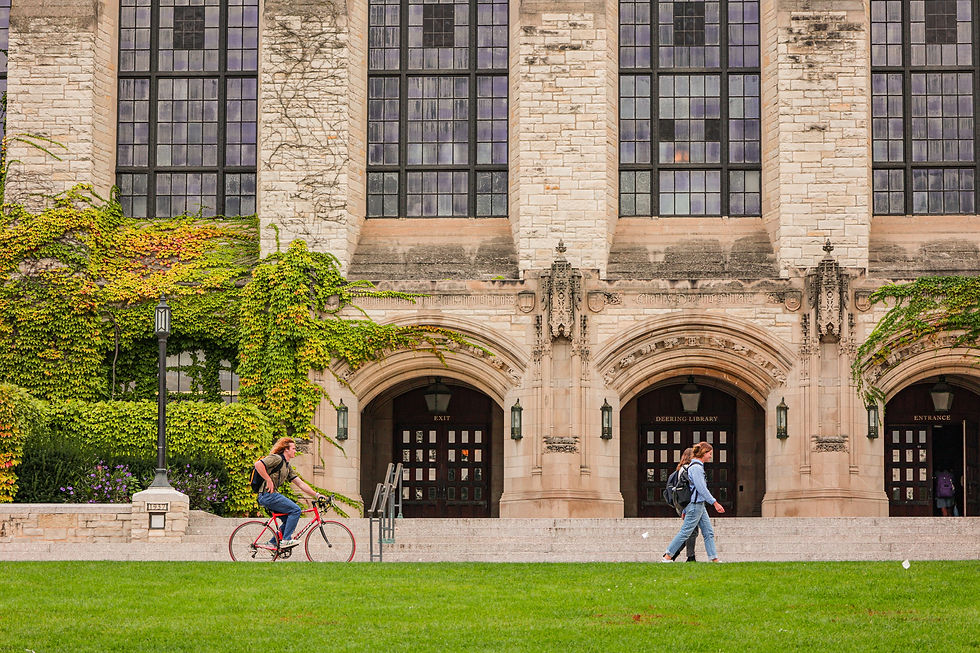From Myth to Reality: The Truth About Getting Into College
- Michele Coleman
- Oct 13
- 3 min read

As a college counselor, I hear the same worries and misconceptions year after year. Let's set the record straight on some of the most persistent myths about college admissions.
Myth #1: "You need a perfect 4.0 GPA to get into a good college."
This might be the most stressful myth out there. The reality? The national average GPA hovers around 3.0. Most colleges practice holistic admissions, which consider a range of factors including extracurricular activities, community service, work experience, and leadership skills, rather than just grades and test scores. A student with a 3.5 GPA who challenged themselves with rigorous courses and shows genuine passion can be more appealing than a 4.0 student who only took easy classes.
Myth #2: "You need to take every AP class your school offers"
Colleges don't expect you to exhaust yourself taking every advanced class available. They want to see that you challenged yourself appropriately, but they also value depth over breadth. It's better to take 4-5 AP classes in subjects you're genuinely interested in and do well in them than to take 10 APs and burn out or earn mediocre grades.
Myth #3: "Demonstrated interest doesn't really matter"
For many colleges, especially small private schools, demonstrated interest is a real factor in admissions decisions. Schools want to admit students who are likely to enroll in their programs. Opening emails, attending virtual information sessions, visiting campus when possible, and writing thoughtful "Why Us?" essays all signal genuine interest. However, some schools don't track interest at all, so research each college's policy.
Myth #4: "Apply to 20+ colleges to maximize your chances"
More isn't always better. The total volume of college applications submitted by November 1st in 2024 was up 10% from 2023, contributing to increased competition. A scattershot approach often yields generic applications that fail to stand out in any particular area. Instead, build a balanced list of 8-15 schools, including reaches, targets, and safeties that you've researched thoroughly. Quality applications to schools that truly fit you will yield better results than cookie-cutter applications to schools you haven't researched.
Myth #5: "Your essay needs to be about overcoming a major tragedy/trauma"
Admission officers read thousands of essays about grandparents' deaths, sports injuries, and mission trips. What they're really looking for is authentic voice, self-reflection, and insight into who you are. An essay about your love of baking bread, your unusual collection, or a meaningful conversation can be just as compelling as an essay about hardship—sometimes more so. The topic matters less than the reflection and writing quality.
Myth #6: "You need to be president or captain of every activity"
Colleges value depth and genuine commitment over title-collecting. A student who has been dedicated to the robotics club for four years, even without a leadership title, demonstrates more than someone who joins five clubs in their senior year just to pad their resume. Leadership comes in many forms—starting an initiative, mentoring younger students, or being the reliable team member who shows up consistently.
Myth #7: "Merit scholarships are only for valedictorians"
While top-tier academic scholarships do go to exceptional students, many colleges offer merit aid to attract strong students across a range of profiles. A student with a 3.7 GPA and 1300 SAT might qualify for significant merit scholarships at schools where they're in the top 25% of applicants. Research each school's merit aid policies and look for schools where your credentials place you above their typical admitted student.
The Bottom Line
College admissions can feel mysterious, but it doesn't have to be overwhelming. Focus on being genuine, challenging yourself appropriately, and finding schools that truly fit your goals and personality. The "best" college isn't the one with the lowest acceptance rate—it's the one where you'll thrive academically, socially, and personally.
What other myths have you heard? I'm always happy to clarify misconceptions and help you navigate this process with less stress and more confidence.



Comments